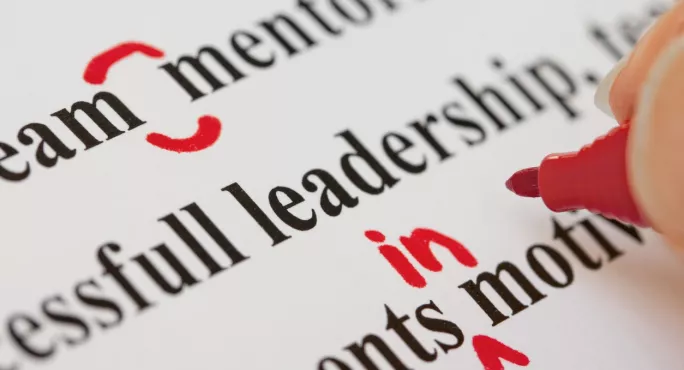- Home
- ‘Great leaders edit teaching, they don’t just impose judgement’
‘Great leaders edit teaching, they don’t just impose judgement’

It is hard to tell someone who has clearly put all their efforts into something that the end result is, well, not quite there.
As an editor, it is something I have to do regularly. And I have been on the receiving end of those editor emails: it feels a little like presenting someone with a gift that the person provided detailed instructions for and then having that person burn said gift in front of you while mocking your ineptitude. We take it very, very personally.
So I know both what school leaders and school teachers may be feeling this week. Leaders want a certain standard of teaching conducted in a way that fits the school ethos. Teachers do their best to match that. Sometimes, the two don’t match as closely as we would like.
Great leaders are great editors
How we handle both the assessment of the “fit” and the relaying of the success of the effort is important. I think there are clear parallels between doing it successfully in journalism and in schools.
When an article is filed to me, this is my process:
- Read it through to get a first impression
- Leave it a day or two
- Read it again for facts
- Read it for effectiveness
- Read it for tone
I never make a snap judgement on the first read - my mood could dictate my judgement as much as the piece itself.
On second read the assessment of factual accuracy is key. If it is not factual, then there is little point editing it.
Then the read for effectiveness is complex: does this persuade me, make me think, is it believable, is it well written?
And then tone: does this piece make sense in this magazine?
If it is factually correct, if it is effective, but if it fails in its tone, I have a tricky decision: will changing the tone reduce its effectiveness?
An individual approach
A wry smile will have formed on the lips of some readers as they progressed along that last line. For how many teachers get the results, are clearly effective teachers, but have had their teaching edited for “tone”? Here’s a conservative guess: all of them.
But what I see going around schools each week is that great school leaders are fantastic editors of teaching. The gift is never burned.
Where tone, effectiveness and factual accuracy are all present and correct in the teaching, they leave it well alone, happy to provide praise and a few pointers of improvement for next time.
If factual accuracy and effectiveness are lacking, they will work with the teacher by providing detailed notes of improvement and explanations for that improvement. A lot of that may mean an adaptation of “tone” - that teacher may have to change their pedagogical approach - and you will get the refrain “but it does not sound like me”.
I get that all the time as an editor and the response is, unfortunately, a blunt one: sounding like you was not working, we need a different “you”.
A prime example?
Where tone is the only area lacking, great leaders make great editing decisions.
If changing the tone to suit the school - or in my case, the magazine - would make that teacher or article less effective, if forcing them down a particular style of teaching or writing more in keeping with the school or magazine would make that teacher or article less successful, more often than not it goes one of two ways:
- They are so effective you make an exception and you make that exception explicit. For Tes, that is celebrating that difference in the way it is presented. In schools, it means that teacher is often the one called on to provide that end of the day shot-in-the-arm session on inset day.
- If the tone is so far off it is problematic, to the point of parent concerns, you make suggested edits through modelling what you want. You tell them to take that information away and put it into their own words. In short, you ask them for their best version of what you require.
The latter scenario is not always a happy compromise. Both sides can feel uncomfortable with the fit: the leader in fear of the teacher going off piste, the teacher feeling constrained and not themselves.
But it can also be educational: that new approach may be the making of that teacher, that version they create may be more successful than the original and prompt the school leader to set them up as the model to be replicated.
Whatever the outcome, the most important thing throughout this process is honesty and respect.
This week, as teachers return to work, these conversations will be happening and they need to be done properly. Great school leaders get the best out of staff because they do this. If I can edit half as well as they lead, then I’d be happy - as will all those teachers that write for me.
Jon Severs is commissioning editor at Tes
Want to keep up with the latest education news and opinion? Follow Tes on Twitter and like Tes on Facebook
Keep reading for just £1 per month
You've reached your limit of free articles this month. Subscribe for £1 per month for three months and get:
- Unlimited access to all Tes magazine content
- Exclusive subscriber-only stories
- Award-winning email newsletters